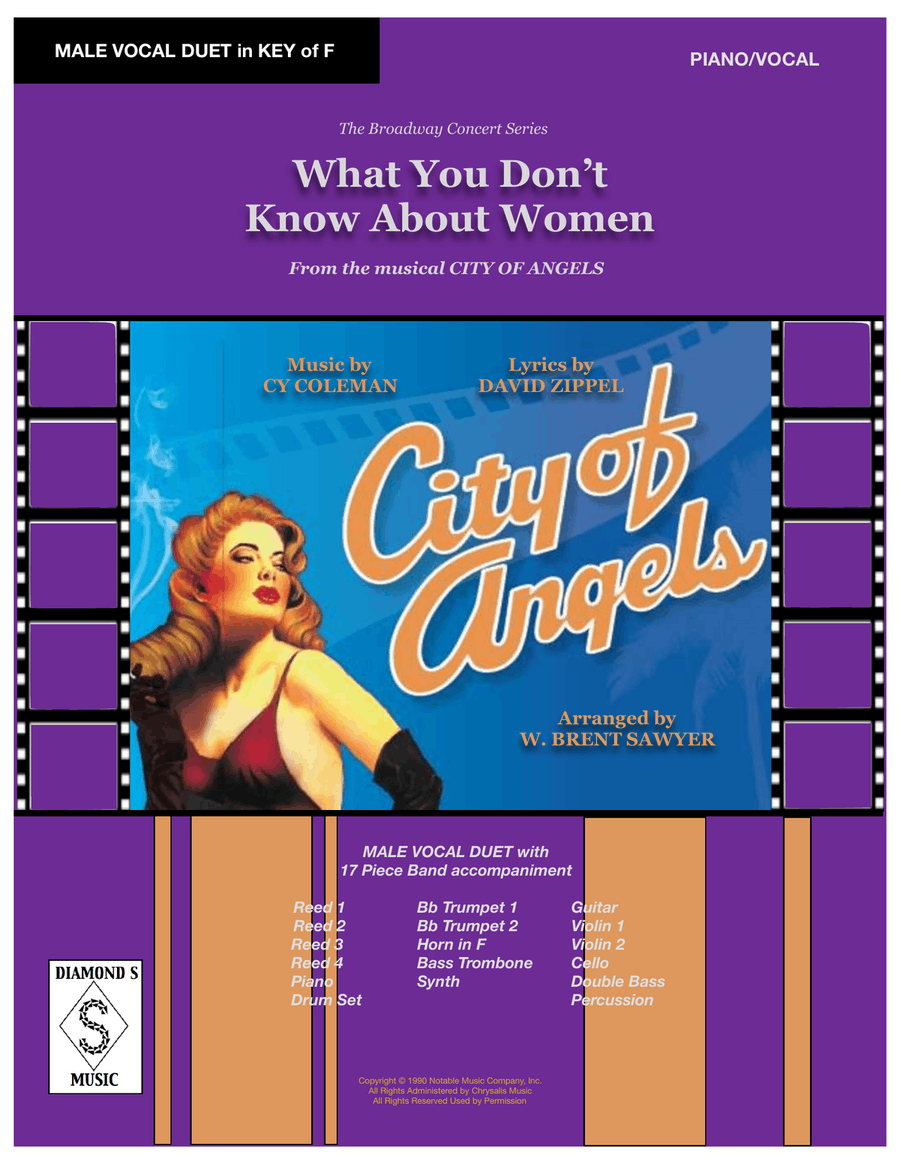Piano,Voice Duet Piano,Voice - Level 5 - Digital Download SKU: A0.790075 Composed by Cy Coleman. Arranged by W. Brent Sawyer. Contemporary. 10 pages. Diamond S Music #3561465. Published by Diamond S Music (A0.790075). WHAT YOU DONâT KNOW ABOUT WOMEN from the musical CITY OF ANGELS. MALE VOCAL DUET in the KEY of F with 17 piece Band accompaniment. This is the PIANO/VOCAL PART ONLY. Scored for: Reed 1 (Flute, Bb Clarinet, Alto Sax), Reed 2 (Bb Clarinet, Alto Sax), Reed 3 (Bb Clarinet, Tenor Sax), Reed 4 (Bass Clarinet, Bari Sax), Bb Trumpet 1 & 2, Horn in F, Bass Trombone, Piano, Synth, Violin 1 & 2, Cello, Acoustic Guitar, Double bass, Drum Set, Percussion. This is an exuberant jazzy song from the 1989 Broadway musical City Of Angels with music by the great Cy Coleman and Lyrics by David Zippel. This song, in a very jazzy style, was originally is a fun lament of two women about their men who wonât listen to them. This version is sung by men and causes the meaning to be slightly shifted so that the men say how they donât understand the women and how they do the things mentioned in the song - Only the pronouns have been flipped from the original. This is in the style of the original Broadway arrangement and in the original Broadway key. This arrangement can also be purchased with just the RHYTHM PACK that contains the Piano/Vocal, Guitar, Bass, Drums Parts or just the PIANO/VOCAL part if you donât need the full orchestration. This arrangement is also available in the original FEMALE version. Other similar arrangements from DIAMOND S MUSIC available at: https://www.sheetmusicplus.com/publishers/diamond-s-music/6940
